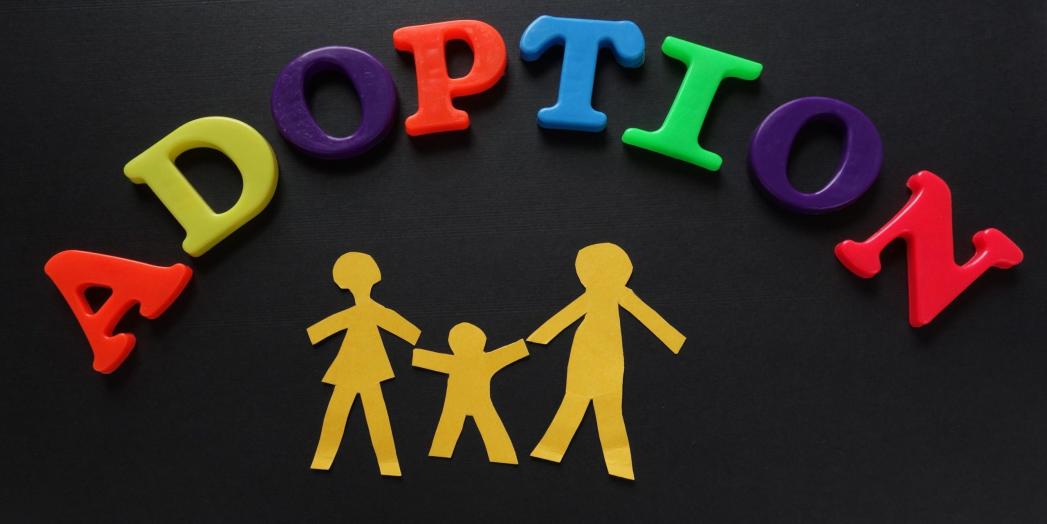What Are the Benefits of Adoption?
Adoption is the legal process by which a person becomes the parent of a child who is not their biological child. It is a significant act of love and commitment that provides a loving home to children in need and creates stronger, more inclusive communities.

This article explores the benefits of adoption for both children and adoptive parents, as well as the societal benefits of adoption.
Benefits For Children
Stable And Nurturing Environment
Adoption provides children with a stable and nurturing environment that supports their physical, emotional, and psychological well-being. Studies have shown that adopted children are more likely to have positive outcomes in terms of their health, education, and social development compared to children who remain in foster care.
- A study by the National Adoption Center found that adopted children are less likely to experience emotional and behavioral problems than children who remain in foster care.
- Another study by the Child Welfare League of America found that adopted children are more likely to graduate from high school and attend college than children who remain in foster care.
Access To Education And Opportunities
Adoption can provide children with access to quality education, healthcare, and other opportunities that may not have been available to them in their previous circumstances. Adoptive parents often go above and beyond to ensure that their adopted children have the resources and support they need to succeed in life.
- A study by the University of Texas at Austin found that adopted children are more likely to have access to quality healthcare and education than children who remain in foster care.
- Another study by the National Center for Education Statistics found that adopted children are more likely to attend college than children who remain in foster care.
Sense Of Belonging And Identity
Adoption provides children with a sense of belonging and identity within a family. Having a supportive and loving family environment is essential for a child's emotional and psychological well-being. Adoption can help children to develop a strong sense of self and to feel connected to their family and community.
- A study by the University of California, Los Angeles found that adopted children are more likely to have a positive sense of self and to feel connected to their families than children who remain in foster care.
- Another study by the University of Minnesota found that adopted children are more likely to have healthy relationships with their peers and to be involved in their communities than children who remain in foster care.
Benefits For Adoptive Parents
Fulfillment And Purpose

Adoption can bring a sense of fulfillment and purpose to adoptive parents' lives. Many adoptive parents find that adoption is a deeply rewarding experience that allows them to make a positive impact on the life of a child. Adoption can also help adoptive parents to grow as individuals and to develop stronger bonds with their families.
- A study by the National Adoption Center found that adoptive parents are more likely to report feeling fulfilled and satisfied with their lives than non-adoptive parents.
- Another study by the Child Welfare League of America found that adoptive parents are more likely to have strong bonds with their children and to be involved in their children's lives than non-adoptive parents.
Unconditional Love And Connection
Adoptive parents develop a unique and unconditional love for their adopted children. This love is not based on biology, but rather on the shared experiences and bonds that are formed between parent and child. Adoptive parents often report feeling an overwhelming sense of love and connection with their adopted children.
- A study by the University of Texas at Austin found that adoptive parents are more likely to report feeling a strong bond with their adopted children than non-adoptive parents.
- Another study by the National Center for Adoption found that adoptive parents are more likely to report feeling unconditional love for their adopted children than non-adoptive parents.
Expanded Family And Support Network

Adoption can expand adoptive parents' families and provide them with a broader support network. Adoptive parents often develop close relationships with their adopted children's biological families, as well as with other adoptive families. This extended family and support network can be a valuable resource for adoptive parents and their children.
- A study by the University of California, Los Angeles found that adoptive parents are more likely to have strong relationships with their extended families than non-adoptive parents.
- Another study by the University of Minnesota found that adoptive parents are more likely to be involved in their communities and to have friends who are also adoptive parents.
Societal Benefits Of Adoption
Strengthening Communities
Adoption can strengthen communities by creating diverse and inclusive families. Adoption helps to break down stereotypes and promote understanding among different cultures and backgrounds. Adopted children bring new perspectives and experiences to their communities, and they help to create a more inclusive and welcoming environment for all.
- A study by the National Adoption Center found that adoptive families are more likely to be involved in their communities and to volunteer their time than non-adoptive families.
- Another study by the Child Welfare League of America found that adoptive families are more likely to have positive relationships with their neighbors and to be involved in local activities.
Reducing The Number Of Children In Foster Care
Adoption can help to reduce the number of children in foster care. There are currently over 400,000 children in foster care in the United States, and many of these children are waiting to be adopted. Adoption can provide these children with a permanent and loving home, and it can help to reduce the burden on the foster care system.
- A study by the National Adoption Center found that adoption is a cost-effective way to reduce the number of children in foster care.
- Another study by the Child Welfare League of America found that adoption can help to improve the lives of children who have experienced abuse or neglect.
Adoption is a loving and rewarding experience that can benefit both children and adoptive parents. Adoption provides children with a stable and nurturing environment, access to education and opportunities, and a sense of belonging and identity. Adoption also brings a sense of fulfillment and purpose to adoptive parents' lives, and it can help to expand their families and support networks. Adoption can also strengthen communities by creating diverse and inclusive families, and it can help to reduce the number of children in foster care.
If you are considering adoption, there are many resources available to help you get started. You can learn more about adoption from the National Adoption Center, the Child Welfare League of America, and the North American Council on Adoptable Children. You can also find support and guidance from other adoptive parents through online forums and support groups.
Adoption is a lifelong commitment, but it is also a journey that is filled with love, joy, and fulfillment. If you are ready to make a difference in the life of a child, adoption may be the right choice for you.
YesNo

Leave a Reply